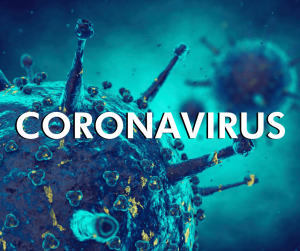8 Ways You Can Protect Your Liver When You’re Living With Hepatitis C
To keep your liver healthy when living with hepatitis C, the most important thing to do is to follow a hepatitis C treatment plan outlined by your hepatitis specialist, which is usually not your primary care doctor, but a board certified doctor with additional training to treat infectious diseases, liver diseases, or gastroenterologist disorders, among a few others. There are a number of treatment options available to slow or even stop damage to the liver and dramatically reduce your risk for hepatitis C-related complications.
In addition to a treatment plan described by your immunology specialist, these eight simple steps can help keep the liver healthy in the battle against hepatitis C:
1. Avoid Alcohol
Alcohol is toxic to the liver, and drinking alcohol is associated with a faster progression of liver disease. For patients with hepatitis C, there is no safe amount of alcohol. There is no measure of how much alcohol is harmful; therefore the best recommendation is not to drink any.
2. Minimize Acetaminophen Use
Acetaminophen (commonly found in over-the-counter pain relievers such as Sudafed) can cause damage on its own, so if the liver is already compromised, the chances of liver damage are higher. Limiting the use of pain medications containing acetaminophen to less than 2,000 milligrams a day can lower the chances of damaging the liver further.
3. Discuss All Medications or Supplements with Your Doctor
Drugs that are metabolized by the liver may cause further harm when the liver is already damaged. Even “natural” supplements can interfere with liver function and cause severe side effects. It’s best to inform your doctor in on all the medications being taken.
4. Maintain a Healthy Weight Through Diet and Exercise
The fat built up in the liver when you’re overweight can contribute to insulin resistance and liver damage from fibrosis, or scarring, of the liver. Exercising regularly and making other lifestyle changes like eating healthy foods and watching your calorie intake can help to protect the liver.
5. Don’t Give Up Coffee
According to preliminary research in a study of 766 participants conducted by the National Institutes of Health, patients who drank three or more cups of coffee per day had a 50 percent lower risk of disease progression.
6. Get Vaccinated
It’s best to be proactive and get tested for other viruses that affect the liver, like hepatitis A and hepatitis B, and get vaccinated against them to reduce the risk for further liver damage.
7. Talk About Sex
It’s not uncommon to have a normal sex life in a monogamous relationship where one partner has chronic hepatitis C. The transmission of hepatitis C through sex is low, and the couple always has the decision to use barrier protection. Using barrier protection is recommended for people having sex with multiple partners to help protect others from hepatitis C and protect themselves against sexually transmitted diseases like HIV, which can accelerate liver damage.
8. Keeping Appointments for Regular Checkups
For chronic hepatitis C, most patients will see their doctor every three to six months, depending on the severity of the illness and the type of treatment being performed. Don’t skip these appointments. Use them as opportunities to evaluate the best care steps as well as overall condition.
To schedule an appointment with one of our board certified specialists call (407) 647-3960 or click here to request an appointment.
More Articles
Dr. DeJesus Recognized by Orlando Magazine
For the 5th consecutive year, Dr. DeJesus has been recognized by his peers in Orlando Magazine for his work as medical director at Orlando Immunology Center. Dr. DeJesus is a graduate from the University of Puerto Rico, School of Medicine. He completed his Internal Medicine training and Infectious Disease fellowship at the Medical College of…
Read MoreJoin OIC at the 2015 AIDS Walk Orlando
Orlando Immunology Center is pleased to announce that we will again be sponsoring a team at this year’s 2015 AIDS Walk Orlando. If you are interested in joining our team or donating to this worthwhile cause, please let us know. Saturday, March 28, 2015 In Florida, 15% of all new HIV infections reported among females…
Read MoreOIC Wins Wave Award for Favorite Local Healthcare Professional
The Orlando Immunology Center (OIC) announced today they have received the Central Florida/Orlando 2015 Watermark Awards for Variety and Excellence (WAVE) Award for favorite local healthcare professional. “We see this as a huge honor and will continue to do everything in our power to help patients from all walks of life be healthy, happy and…
Read MoreBest of Luck on Your New Adventure
Best of Luck, Love Your Family We’re a family. And just like every family, we go through triumph and tragedy together – sometimes both in the same day. Today is one of those days as we wish someone we love best of luck on their new adventure. Omar Marquez, LPN, CCRC, one of our Clinical Research Coordinators,…
Read MoreWendy Reflects on Her 20 Amazing Research Years at OIC
“Incredible progress” – Wendy reflects on how much has changed in her 20 years of amazing research at OIC but adds “I’m staying until we find a cure for HIV.” Every field sees change over time, but not as much as the field of HIV. Twenty years ago there were few medications with many side effects.…
Read MoreEverything You Need To Know for Free Leaders of Color Training
Are you a person of color living with HIV and want to make a difference? Do you want to be a part of ending HIV in Orlando? Are ready to serve as a leader? Then this free leaders of color training is for you! Where: Heart of Florida United Way, 1940 Traylor Blvd., Orlando, FL 32804 When: July…
Read MoreMassive 500 Percent Increase in Prep Use; New Research
There’s been a massive 500 percent increase in PrEP. But is that enough to end HIV? New research shows a massive 500 percent increase in PrEP use to prevent HIV. During 2014 to 2017, several key aspects of HIV prevention dramatically increased. Which is great news! But these improvements were not across all groups. Moreover, only about one third…
Read MoreWhy Preventive Medical Care Matters to You
We only have one life! So live your happiest, healthiest life through prevention! What is preventive medical care? Preventive medical care is any medical service that will help prevent an emergency or chronic condition. “I’m active and feel great – I don’t need a doctor!” That’s the entire purpose! To keep you that way! It promotes an…
Read MoreHow to Easily Get Medically Prepared for a Hurricane
Getting medically prepared for a hurricane is easier than you think. But it could be even more important than your typical hurricane prep routine. Hurricanes are erratic, powerful and destructive forces of nature. In addition, they can rapidly grow stronger. Or even decrease in strength but stall bringing wind and rain for extended periods of…
Read MoreOIC COVID-19 Response
During this most difficult time, we at OIC strive to continue to take the best care of you and all the health needs of our patients. Due to the severity of the situation involving the Coronavirus (COVID-19), we have had to implement many (temporary) changes in the best interest and the safety of both our…
Read MoreFrom SOCIAL to PHYSICAL Distance
SARS-CoV-2 (SARS-2), the virus that causes COVID-19, spreads from person to person through respiratory droplets produced from an infected person, even if that person does not know he/she is already infected. Most transmissions occur during very close contact with an infected person or when an infected person coughs or sneezes around you. A six-feet parameter…
Read MoreCOVID-19 Basic Immune Response
Just for clarification: SARS-2 is the virus that causes COVID-19. The current COVID-19 PCR test measures viral RNA. It does not measure our immune response to the virus. Viral RNA is only found in blood with active viral infection (or for a short period of time after recovery). In fact, in theory, we should get…
Read MoreInterim Guidance for COVID-19 and Persons with HIV – Updated: March 20, 2020
This interim guidance reviews special considerations for persons with HIV and their health care providers in the United States regarding COVID-19. Information and data on COVID-19 are rapidly evolving. This guidance includes general information to consider. Clinicians should refer to updated sources for more specific recommendations regarding COVID-19. Guidance for all Persons with HIV In…
Read More











